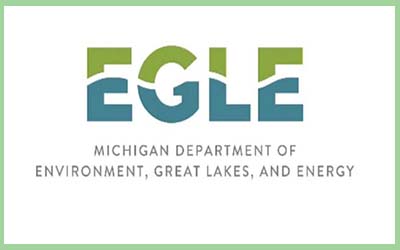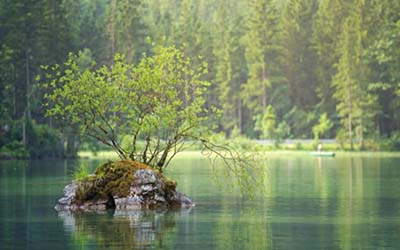
Michiganders should avoid foam on lakes and rivers
Press Release FOR IMMEDIATE RELEASE: May 27, 2021 CONTACT: Lynn Sutfin, 517-241-2112, SutfinL1@ MDHHS recommends Michiganders avoid foam on lakes and rivers LANSING, Mich. – As the summer months approach, the Michigan Department of Health and Human Services (MDHHS) is issuing its annual recommendation that Michiganders should avoid contact with foam they may see on Michigan waterbodies such as lakes, rivers and streams. The foam may have unknown chemicals or bacteria in them, so it is recommended to avoid contact. Foam can form on any waterbody, but foam on some waterbodies may have high levels of per- and polyfluoroalkyl substances (PFAS). PFAS-containing foam tends to be bright white in color, is often lightweight and may pile up like shaving cream on shorelines or blow onto beaches. Naturally occurring foam without PFAS tends to pile up in bays, eddies or at river barriers such as dams. Naturally occurring foam is typically off-white and/or brown in color and often has an earthy or fishy scent. If contact with foam is made, care should be taken to rinse or wash it off as soon as possible, particularly if PFAS contamination is suspected in the waterbody. The longer that foam remains on the skin, the greater the chance of accidentally swallowing the foam or the foam residue left behind. “Although current science shows that the risk of PFAS getting into your system from contact with skin is low, you can minimize exposure to PFAS by rinsing or showering after you are done with your recreational activities,” said Dr. Joneigh Khaldun, chief medical executive and chief deputy for health at MDHHS. “In general, washing hands and rinsing off after recreating will help to protect people from chemicals and bacteria that may be in waterbodies.” PFAS are emerging contaminants, and the state is working to identify all waterbodies that have been affected. Health advisories have been issued for specific waterbodies where PFAS-containing foam has been found in the past. These specific advisories can be found in the “PFAS Foam on Lakes and Streams” section of Michigan.gov/PFASResponse, under “Testing.” MDHHS continues to evaluate surface water and foam data as it is available and will issue future advisories as needed. MDHHS’ recommendation to avoid foam on waterbodies is for people of all ages, including young children. An MDHHS evaluation suggests young children could have PFAS exposure that may increase their risk of negative health effects if they have repeated contact with foam containing high amounts of PFAS for a few hours a day throughout the recreational season. Contact with surface water, including swimming or other recreational activities in waterbodies containing PFAS is not a health concern. PFAS-containing foams typically have a much greater concentration of chemicals than what is found in the water itself. The Michigan Department of Agriculture and Rural Development also recommends that people do not allow their animals – especially dogs – to come into contact with or swallow the foam. Dogs and other animals are at risk of swallowing foam that has accumulated in their fur when grooming themselves. All animals should be thoroughly rinsed off and bathed with fresh water after coming into contact with PFAS-containing foam. Pet owners with questions related to their animals and foam ingestion should contact their veterinarian. More information on PFAS-containing foam can be found under the “PFAS Foam” section at Michigan.gov/PFASResponse. If you have questions about exposures to PFAS and/or foam, call the MDHHS Environmental Health hotline at 800-648-6942. |





 According to
According to 